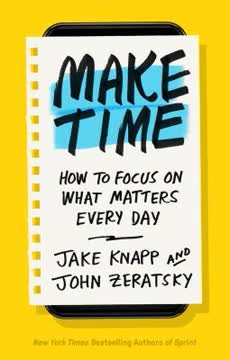Key Takeaways
1. Assess Your Entrepreneurial Aptitude Before Starting a Small Business
Not everyone is cut out to be a small-business owner.
Self-assessment is crucial. Before diving into entrepreneurship, evaluate your skills, personality, and financial readiness. Consider your ability to handle risk, make decisions, and manage time effectively. Assess your experience in your chosen industry and your capacity to wear multiple hats in a business.
Financial preparation is key. Ensure your personal finances are in order before starting a business. This includes:
- Having an emergency fund
- Paying off high-interest debt
- Understanding your credit score
- Assessing your ability to live on a reduced income initially
Consider alternatives. If you're not ready for full entrepreneurship, explore options like:
- Buying an existing business
- Franchising
- Starting a side business while maintaining employment
- Partnering with an experienced entrepreneur
2. Develop a Solid Business Plan and Secure Appropriate Financing
Your mission: impossible if you fail to define it.
A comprehensive business plan is essential. It serves as a roadmap for your business and a tool for securing financing. Key components include:
- Executive summary
- Company description
- Market analysis
- Organization and management structure
- Product or service line
- Marketing and sales strategies
- Financial projections
Financing options vary. Consider:
- Personal savings (bootstrapping)
- Friends and family investments
- Bank loans
- SBA loans
- Angel investors or venture capital (for high-growth potential businesses)
- Crowdfunding
Be realistic about capital needs. Account for:
- Start-up costs
- Working capital for initial operations
- A financial cushion for unexpected expenses
3. Choose the Right Business Structure and Legal Entity
Weighing unincorporated options
Business structure impacts taxes and liability. Common options include:
- Sole proprietorship: Simplest form, but offers no personal liability protection
- Partnership: Allows sharing of responsibilities and resources, but partners are personally liable
- Limited Liability Company (LLC): Combines liability protection with tax flexibility
- Corporation: Offers strongest liability protection but has more complex regulatory requirements
Consider future growth. Choose a structure that can accommodate your business's expansion and changing needs.
Consult professionals. Work with an attorney and accountant to understand the legal and tax implications of each structure for your specific situation.
4. Master Marketing: Products, Pricing, Distribution, and Promotion
Nothing happens until a sale is made.
Develop a comprehensive marketing strategy. This should encompass:
- Product development: Create solutions, not just products
- Pricing: Balance profitability with market competitiveness
- Distribution: Choose channels that reach your target customers efficiently
- Promotion: Utilize a mix of advertising, public relations, and digital marketing
Understand your target market. Conduct market research to identify:
- Customer demographics and psychographics
- Market size and growth potential
- Competitive landscape
Leverage digital marketing. Utilize:
- Social media platforms
- Email marketing
- Content marketing (blogs, videos, podcasts)
- Search engine optimization (SEO)
5. Implement Efficient Accounting and Financial Management Systems
Cash flow: The fuel that drives your business
Set up robust financial systems. Implement:
- Accounting software for tracking income and expenses
- Systems for invoicing and managing accounts receivable
- Budgeting and forecasting tools
Monitor key financial metrics. Regularly review:
- Cash flow statements
- Profit and loss statements
- Balance sheets
- Key performance indicators (KPIs) specific to your industry
Plan for taxes. Set aside funds for:
- Income taxes
- Payroll taxes
- Sales taxes (if applicable)
Work with a tax professional to ensure compliance and maximize deductions.
6. Leverage Technology to Enhance Business Operations and Marketing
Tapping technology
Utilize technology to improve efficiency. Consider:
- Customer Relationship Management (CRM) systems
- Project management tools
- Cloud-based collaboration platforms
- Automated inventory management systems
Enhance your online presence. Develop:
- A user-friendly website
- Mobile-optimized content
- E-commerce capabilities (if selling products)
Embrace data analytics. Use data to:
- Understand customer behavior
- Optimize marketing campaigns
- Improve product development
- Streamline operations
7. Prioritize Customer Service and Retention for Long-Term Success
Customer service = solving your customers' problems or meeting their needs.
Focus on customer satisfaction. Implement strategies for:
- Gathering customer feedback
- Quickly addressing complaints
- Exceeding customer expectations
Build customer loyalty. Consider:
- Loyalty programs
- Personalized communication
- Exclusive offers for repeat customers
Train your team. Ensure all employees understand the importance of customer service and are equipped to handle customer interactions effectively.
Learn from lost customers. Conduct exit interviews or surveys with departing customers to identify areas for improvement and prevent future losses.
Last updated:
FAQ
What's Small Business for Dummies about?
- Comprehensive Guide: Small Business for Dummies by Eric Tyson is a detailed guide for starting, managing, and growing a small business, covering essential topics like financial management, marketing, and operations.
- Structured Learning: The book is organized into five parts, addressing entrepreneurship, buying a business, running a successful business, and maintaining business longevity.
- Practical Advice: It offers actionable insights and real-world examples to help entrepreneurs navigate the complexities of small business ownership.
Why should I read Small Business for Dummies?
- Expert Insights: Written by Eric Tyson, a recognized expert in personal finance and small business, the book shares valuable lessons from his extensive experience.
- Avoid Common Pitfalls: The authors aim to help readers avoid costly mistakes by learning from their experiences and insights.
- User-Friendly Format: The For Dummies series is known for its accessible language, making complex topics easier to understand for readers of all backgrounds.
What are the key takeaways of Small Business for Dummies?
- Financial Readiness: Emphasizes the importance of having personal finances in order before starting a business to reduce stress and increase success chances.
- Business Plan Importance: A well-crafted business plan is essential for securing funding and serves as a roadmap for business operations.
- Adaptability and Learning: Stresses the need for business owners to be adaptable and willing to learn as markets and technologies evolve.
What are the best quotes from Small Business for Dummies and what do they mean?
- “Nothing happens until a sale is made.”: Highlights the critical role of sales in business success; without sales, there is no revenue.
- “The harder you work, the luckier you get.”: Reflects the idea that success often results from hard work and dedication rather than mere chance.
- “Your idea probably isn’t what’s going to make or break your business. You are.”: Emphasizes the importance of the entrepreneur's role in executing ideas over the idea itself.
How does Small Business for Dummies define cash flow?
- Movement of Money: Cash flow is the movement of money in and out of a business, including sales, expenses, and investments.
- Critical for Operations: Effective cash flow management is crucial for meeting financial obligations and ensuring smooth operations.
- Forecasting Importance: Emphasizes forecasting cash flow to anticipate future financial needs, involving predicting sales and expenses.
What is the Small-Business Owner’s Aptitude Test in Small Business for Dummies?
- Self-Assessment Tool: Consists of 20 questions designed to help potential entrepreneurs evaluate their readiness for small business ownership.
- Scoring System: Each question is scored from 1 to 5, with higher scores indicating a stronger entrepreneurial aptitude.
- Guidance for Decision-Making: Results help individuals determine if they should pursue starting a business or consider alternative career paths.
How do I create a business plan according to Small Business for Dummies?
- Essential Components: A business plan should include a mission statement, business description, management structure, marketing plan, and financial projections.
- Purpose of the Plan: Serves as both a roadmap for your business and a tool to attract investors or secure loans.
- Regular Updates: The authors stress the importance of keeping the business plan current to reflect changes in the business environment and strategy.
What are the pros and cons of owning a small business as discussed in Small Business for Dummies?
- Pros: Benefits include the satisfaction of creation, financial upside, self-sufficiency, and the ability to establish your own culture.
- Cons: Challenges include high responsibility, competition, the risk of business failure, and the potential for significant stress.
- Balanced Perspective: Encourages readers to weigh these factors carefully before deciding to pursue small business ownership.
What financing options are available for starting a business in Small Business for Dummies?
- Bootstrapping: Involves using personal savings or funds from family and friends, common among many entrepreneurs.
- Bank Loans and SBA: Traditional bank loans and Small Business Administration (SBA) loans require a solid business plan and collateral.
- Angel Investors and Venture Capital: For compelling business ideas, seeking investment from angel investors or venture capitalists can provide necessary funding.
How can I find the right business to buy according to Small Business for Dummies?
- Set Criteria: Define your business-buying appetite by considering factors like type of business, industry, lifestyle, size, and location.
- Research Resources: Utilize publications, networking with advisors, and business brokers to uncover potential opportunities.
- Evaluate Franchises and MLMs: Discusses the pros and cons of franchises and multilevel marketing companies as viable options for purchasing a business.
What are the financial management strategies discussed in Small Business for Dummies?
- Understanding Financial Statements: Emphasizes the need to comprehend profit and loss statements, balance sheets, and cash flow statements.
- Budgeting for Success: Advocates for creating an annual budget to plan for expenses and revenues, helping control costs.
- Cash Flow Management: Discusses strategies for improving cash flow, such as timely invoicing and managing inventory levels.
How does Small Business for Dummies address marketing strategies?
- Comprehensive Marketing Approach: Marketing includes market research, product development, and customer service, not just advertising.
- Understanding Customer Needs: Emphasizes tailoring products and services to meet customer needs to enhance satisfaction and loyalty.
- Utilizing Digital Marketing: Encourages leveraging online platforms to promote products and services effectively.
Review Summary
Small Business For Dummies receives mixed reviews, with an average rating of 3.72/5. Readers appreciate its comprehensive overview of starting and running a small business, covering topics like financing, marketing, and management. Many find it a useful starting point, though some criticize its basic nature and U.S.-centric focus. The book is praised for its practical advice and easy-to-understand explanations, but some readers desire more in-depth information on certain topics. Overall, it's considered a helpful resource for aspiring entrepreneurs and those new to small business ownership.
Similar Books










Download PDF
Download EPUB
.epub digital book format is ideal for reading ebooks on phones, tablets, and e-readers.








